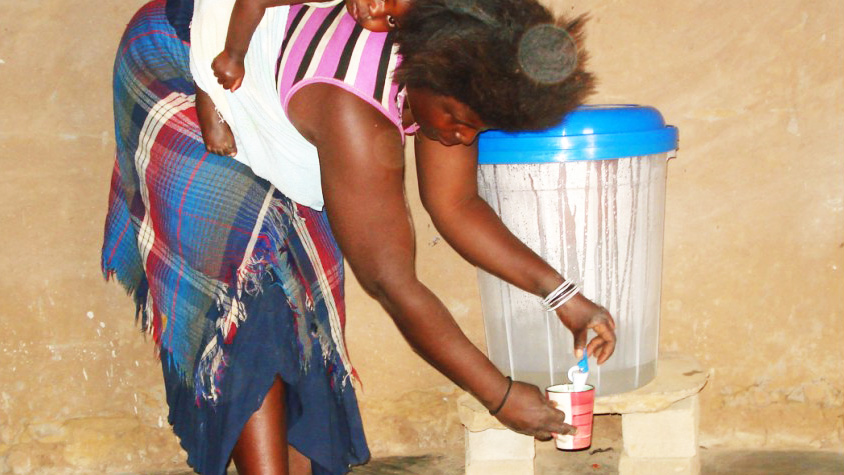This MTech Industrial Design project from 2007-2009 was undertaken by Martin Bolton with focus on the design and development of an improved low-cost ceramic water filter. The design outcome was based on the existing Potpaz home water treatment device, and was targeted for use within rural households of the Vhembe region. The project was supervised by myself with co-supervision from Dr. Paul Jagals from the UJ Water Health Research Centre. The project was undertaken in partnership with the UJ Department of Industrial Design the UJ Water Health Research Centre and the South African Water Research Commission (WRC).
Overview:
This project aimed to develop the Potpaz ceramic water filter into an improved filter design, optimally suited to South African rural conditions, which could provide potable water to households. Communities that do not have access to in-house treated water often end up with a contaminated water supply since the water they consume is usually sourced from communal water collection points and stored in containers. There is evidence that the water consumed at point-of-use is often not of a potable quality due to contamination between collection and consumption. The existing Potpaz home water treatment device was scientifically proven to return contaminated water to a potable state. A limited number were imported to South Africa for use in a broader WRC project that studied the effect of household point-of-use treatment on the health of the consumer. It was not at all certain whether the households would use these devices effectively because the filter was not part of their everyday water system. Martin, an industrial designer, therefore played an important role in this project investigating whether or not they would effectively use this filter. Households that took part in the point-of-use project used the Potpaz home water treatment device for more than two months and were approached to provide feedback regarding its use. From the feedback, it became evident that there were aspects of the Potpaz design that needed modification towards an improved water filter, which would be more suited for its intended use in rural households. An Action Research influenced methodology and User-Centred Design approach informed the collection of original data and feedback on areas of improvement. This, together with visits to local shops and community potters, provided sufficient background to understand the needs and preferences of the intended rural users. This informed the design process and increased the chances of developing a readily accepted, more suitable product to the intended users and the domestic environment in which they live. To achieve this, this project focused on the following aspects regarding Potpaz filters: placement, use, and design aspects of usability and ergonomics. Development of the improved filter design culminated in rapid prototyping of a scale model and the fabrication of a full-size working model allowing for the physical interface to evaluate the success of the design solution.
For more information contact Martin Bolton or visit his professional and academic website: www.martinboltondesigner.com
Outcomes:
- Shortly after the completion of his Master’s Martin was appointed as a Lecturer in the Department of Industrial Design, UJ, where he is still currenlty employed, now as a Senior Lecturer.
- Campbell, A.D. & Bolton, M. 2010.The Vhembe Filter: A Product for Rural South Africa. Image & Text: A Journal for Design. 16:4-20. ISSN: 1020 1497 (Peer Reviewed)
- Bolton. M. 2009. Design and development of an improved low cost ceramic water filter based on the existing Potpaz home water treatment device for use within rural households of the Vhembe region. MTech Industrial Design Dissertation. University of Johannesburg.
- Martin’s project was a finalist in the INDEX: AIGA Aspen Design Challenge: Designing Water’s Future in 2009. You can briefly read his project statement as entry to the INDEX competition here.
- The project was also a top 20 finalist in the SABS Foundation Innovation Awards 2011. You can briefly read his project statement as entry to the INDEX competition here.
- Martin’s project was featured on Yanko Design
- All CAD files for the project are share on the Open Source platform Open Source Ecology.






